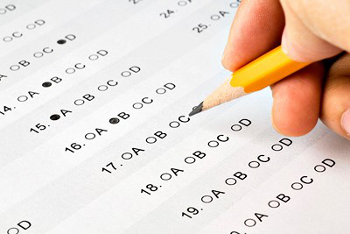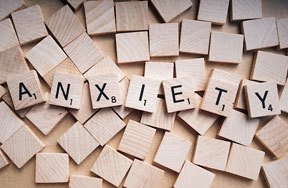If people are always telling you that you’re a worrywart or accuse you of being angsty, chances are you’re already familiar with anxiety, but anxiety is actually very common and there’s a lot that most people don’t know about it. Find out more in The Truth About Anxiety.
 Anxiety affects 40 million adult Americans
Anxiety affects 40 million adult Americans
What is Anxiety?
Anxiety is a type of psychological stress that includes feelings of dread, fear, uneasiness and worry. It can be triggered by all sorts of different situations and things that are generally beyond our control, for example worrying about events in the future or situations we can’t avoid. For some people it is short term and minor (we all face anxieties in our day-to-day lives, whether it’s psyching yourself out about a test or worrying about how to act in front of classmates) and for others it is more long term and can be serious, sometimes requiring medication or treatment. Evolutionary theorists say that anxiety is a natural reaction that would have made us hyper-alert about possible threats in our environment. Here are some different types of anxiety:
- Social Anxiety
- Test/Performance Anxiety
- Generalized Anxiety
- Existential Anxiety
- Decision Anxiety
 Panic Attacks are a common symptom
Panic Attacks are a common symptom
Symptoms of Anxiety
Whether you’re biggest fear is embarrassing yourself in public (Social Anxiety) or the bigger question of why we’re all here (Existential Anxiety), anxiety has some key symptoms you can’t miss like restlessness, jumpiness, tenseness, nausea, sweating, trembling, heart palpitations, shortness of breath, headache, stomach ache, and even dilated pupils. More extreme anxious episodes can result in anxiety attacks or panic attacks, in which you feel a heightened response featuring some or more of the above symptoms to the point where you may not feel that you can even move or breathe and that you may die or lose consciousness. There are many techniques you can learn (like learning to refocus and calm yourself through breathing) and even medications available if you feel you suffer from anxiety attacks.
 Many students get exam anxiety
Many students get exam anxiety
Quick Facts
- Anxiety is the most common mental illness in America (40 million adults are affected by it)
- More women than men report feeling anxiety
- Anxiety can affect your sleep and enhance nervous habits like biting your nails or tapping your feet
- One plus side: studies say that anxious people are less likely to die due to accidents
- Sometimes anxiety is the symptom of more serious health problems, like heart failure
- The philosopher Soren Kierkegaard was the first to examine the issue of Existential Anxiety in his book The Concept of Anxiety.
- Anxiety is often spurred by or the cause of irrational thoughts
Have Your Say
What gives you anxiety? Let us know in the comments section below.

































